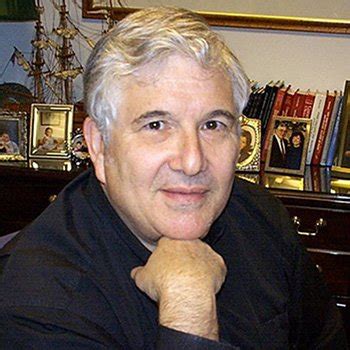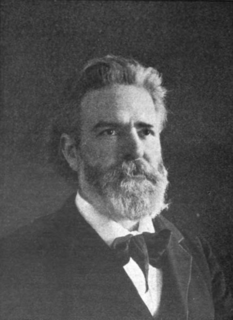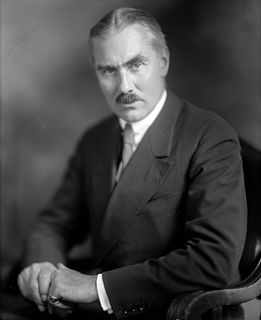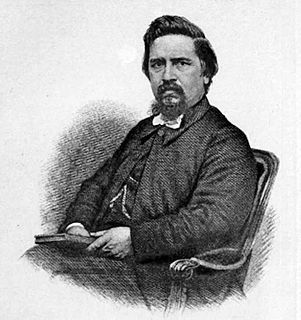Top 1200 Moral Virtues Quotes & Sayings - Page 3
Explore popular Moral Virtues quotes.
Last updated on November 23, 2024.
[D]emocracy will soon degenerate into an anarchy, such an anarchy that every man will do what is right in his own eyes and no man's life or property or reputation or liberty will be secure, and every one of these will soon mould itself into a system of subordination of all the moral virtues and intellectual abilities, all the powers of wealth, beauty, wit and science, to the wanton pleasures, the capricious will, and the execrable cruelty of one or a very few.
There is no doubt that it is around the family and the home that all the greatest virtues, the most dominating virtues of human society, are created, strengthened and maintained. Having a family guarantees that you have a built in support system, and although that support system may not always be what you want it to be, when it comes down to the wire, your family will love you and stand behind you, no matter what.
War both needs and generates certain virtues; not the highest, but what may be called the preliminary virtues, as valor, veracity, the spirit of obedience, the habit of discipline. Any of these, and of others like them, when possessed by a nation, and no matter how generated, will give them a military advantage, and make them more likely to stay in the race of nations.
Well the thing is, once you have a snow leopard it's difficult to go back. Everything is going to be slightly disappointing. It's very telling what your choice would be. Because that's probably how you see yourself. We used to play that game as kids and you'd say if you were animal what would you be and it'd usually be the opposite of what it should be. But all animals have got their virtues. You know, cockroaches got virtues.
I'm not saying that atheists can't act morally or have moral knowledge. But when I ascribe virtue to an atheist, it's as a theist who sees the atheist as conforming to objective moral values. The atheist, by contrast, has no such basis for morality. And yet all moral judgments require a basis for morality, some standard of right and wrong.
A tension has always existed between the capitalist imperative to maximize efficiency at any cost and the moral imperatives of culture, which historically have served as a counterweight to the moral blindness of the market. This is another example of the cultural contradictions of capitalism - the tendency over time for the economic impulse to erode the moral underpinnings of society. Mercy toward the animals in our care is one such casualty.
The foundation of leadership is your own moral compass. I think the best quality leaders really know where their moral compass is. They get it out when they are making decisions. It's their guide. But not only do you have to have a moral compass and take it out of your pocket, it has to have a true north.
What matters at this stage is the construction of local forms of community within which civility and the intellectual and moral life can be sustained through the new dark ages which are already upon us. And if the tradition of the virtues was able to survive the horrors of the last dark ages, we are not entirely without ground for hope. This time however the barbarians are not waiting beyond the frontiers; they have already been governing us for quite some time.
Just as the commander of an army pitches his camp, studies the strength and defenses of a fortress, and then attacks it on its weakest side, in like manner, the enemy of our human nature studies from all sides our theological, cardinal, and moral virtues. Wherever he finds us weakest and most in need regarding our eternal salvation, he attacks and tries to take us by storm.
Why is it immoral for you to desire, but moral for others to do so? Why is it immoral to produce a value and keep it, but moral to give it away? And if it is not moral for you to keep a value, why is it moral for others to accept it? If you are selfless and virtuous when you give it, are they not selfish and vicious when they take it?
The Holy Spirit is the immediate source of all holiness. He is entirely sincere, and perfect in love. He is generous. He is pure in heart, free from selfishness, and never swerves from the path of duty. He is deep like a fountain. He sends forth his virtues in due season. He speaks, and men believe him; he acts, and men are gladdened by him. He possesses all heavenly virtues. He is one with Heaven.
Political realism is aware of the moral significance of political action. It is also aware of the ineluctable tension between the moral command and the requirements of successful political action. And it is unwilling to gloss over and obliterate that tension and thus to obfuscate both the moral and the political issue by making it appear as though the stark facts of politics were morally more satisfying than they actually are, and the moral law less exacting than it actually is.
Contrary to popular opinion, Christians are not nice polite people who never get angry with one another. Those are not the virtues of God's people. Our virtues are truth-telling, kindness, forgiveness and yes, even anger-as long as it is the anger that is part of true love-through which we move closer to one another and to the God who has shown us how it is done.
Scandal is great entertainment because it allows people to feel contempt, a moral emotion that gives feelings of moral superiority while asking nothing in return. With contempt you don't need to right the wrong (as with anger) or flee the scene (as with fear or disgust). And the best of all, contempt is made to share. Stories about the moral failings of others are among the most common kinds of gossip, they are a stable of talk radio, and they offer a ready way for people to show that they share a common moral orientation.
Chastity is the lily of virtues, and makes men almost equal to Angels. Everything is beautiful in accordance with its purity. Now the purity of man is chastity, which is called honesty, and the observance of it, honor and also integrity; and its contrary is called corruption; in short, it has this peculiar excellence above the other virtues, that it preserves both soul and body fair and unspotted.
Legality alone is no guide for a moral people. There are many things in this world that have been, or are, legal but clearly immoral. Slavery was legal. Did that make it moral? South Africa’s apartheid, Nazi persecution of Jews, and Stalinist and Maoist purges were all legal, but did that make them moral?
By "moral discipline," I mean self-discipline based on moral standards. Moral discipline is the consistent exercise of agency to choose the right because it is right, even when it is hard. It rejects the self-absorbed life in favor of developing character worthy of respect and true greatness through Christlike service.
I say the same of humility and of all the virtues; the wiles of the devil are terrible, he will run a thousand times round hell if by so doing he can make us believe that we have a single virtue which we have not. And he is right, for such ideas are very harmful, and such imaginary virtues, when they come from this source, are never unaccompanied by vainglory; just as those which God gives are free both from this and from pride.
Could we forbear dispute, and practice love, We should agree as angels do above. Where love presides, not vice alone does find, No entrance there, hut virtues stay behind: Both faith, and hope, and all the meaner train, Of mortal virtues, at the door remain. Love only enters as a native there, For born in heav'n, it does but sojourn here.
Obstinacy, sir, is certainly a great vice; and in the changeful state of political affairs it is frequently the cause of great mischief. It happens, however, very unfortunately, that almost the whole line of the great and masculine virtues--constancy, gravity, magnanimity, fortitude, fidelity, and firmness--are closely allied to this disagreeable quality, of which you have so just an abhorrence; and in their excess all these virtues very easily fall into it.
To live his life in his own way, to call his house his castle, to enjoy the fruits of his own labour, to educate his children as his conscience directs, to save for their prosperity after his death -- these are wishes deeply ingrained in civilised man. Their realization is almost as necessary to our virtues as to our happiness. From their total frustration disastrous results both moral and psychological might follow.
The objections to religion are of two sorts - intellectual and moral. The intellectual objection is that there is no reason to suppose any religion true; the moral objection is that religious precepts date from a time when men were more cruel than they are and therefore tend to perpetuate inhumanities which the moral conscience of the age would otherwise outgrow.
I look at the most promising putative moral theories. I construct crucial thought experiments in areas where they give conflicting advice. I confront their conflicting advice with my own moral sensitivity, my moral intuition. I take the theory that can best explain the content of my intuitions as gaining inductive support through an inference to the best explanation.
Complaisance, though in itself it be scarce reckoned in the number of moral virtues, is that which gives a lustre to every talent a man can be possessed of. It was Plato's advice to an unpolished writer that he should sacrifice to the graces. In the same manner I would advise every man of learning, who would not appear in the world a mere scholar or philosopher, to make himself master of the social virtue which I have here mentioned.
Fear, coercion, punishment, are the masculine remedies for moral weakness, but statistics show their failure for centuries. Why not change the system and try the education of the moral and intellectual faculties, cheerful surroundings, inspiring influences? Everything in our present system tends to lower the physical vitality, the self-respect, the moral tone, and to harden instead of reforming the criminal.



















































